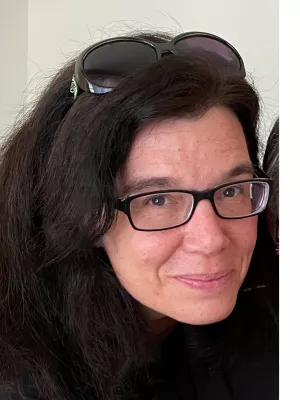
Christine Wamsler
Professor, Docent, appointed Excellent Teaching Practitioner (ETP)

New stories for a more conscious, sustainable society: claiming authorship of the climate story
Author
Summary, in English
Sustainability philosophers claim that we are at an impasse of stories, finding ourselves in a blank chapter between the old and the new. The old story, characterized by separation, technological dominance and human superiority over nature, is unfolding in an ecological crisis giving space for a new narrative defined by inter-being, cooperation and balance. It has been put forward that this crisis is climate change, a phenomenon that epitomizes the old, while holding the potential to act as a bridge to the new. Our study shows the benefits of framing climate change as a problem of story and how the dominant story we have told about climate change can be changed. Based on an approach called “Rising strong”, we address the question of how sustainability students relate to the story on climate change, how they conceptualize and situate it within a bigger narrative, and identify barriers and catalysts for authorship. The results show a clear lack of personal authorship, a feeling of disconnection to the climate story and a disbelief in any revolutionary endings, yet still a slight belief in co-authorship. Catalysts that can help to claim back authorship were identified to be positive emotions (e.g., empathy and hope), integral thinking, creation of space for creativity and co-creation. Barriers were scientific rationality and complexity alongside perceived negative emotions, such as shame and self-doubt. One of the most crucial findings was the re-occurring theme of joint engagement for story-transitioning. This point to the urgent need for both increased co-creation as well as the creation of conditions needed to enable people to engage in such processes.
Department/s
- LUCSUS (Lund University Centre for Sustainability Studies)
Publishing year
2019-11-28
Language
English
Pages
345-359
Publication/Series
Climatic Change
Volume
158
Document type
Journal article
Publisher
Springer
Topic
- Climate Research
Keywords
- Stories
- Narratives
- Climate change
- Authorship
- Co-authorship
- Storytelling
- Revolution
- Sustainability
- Compassion
- Empathy
- Personal development
- Environmental humanities
Status
Published
ISBN/ISSN/Other
- ISSN: 0165-0009